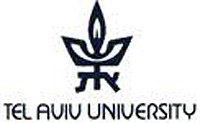 TEL AVIV (Press Release)— Everyone knows the feeling. The dreaded “low battery” message sends you on a frantic search for a charge, but you finally lose the last drop of energy, and you’re stranded, out of touch.
TEL AVIV (Press Release)— Everyone knows the feeling. The dreaded “low battery” message sends you on a frantic search for a charge, but you finally lose the last drop of energy, and you’re stranded, out of touch.
New technology out of Tel Aviv University may just save smartphone users in the near future. The Tel Aviv-based start-up StoreDot Ltd., managed by Dr. Doron Myersdorf and directed by chief scientists Prof. Gil Rosenman and Prof. Simon Litsyn of TAU’s School of Electrical Engineering, is on a path to making the smartphone charging process fast and painless. At a Microsoft conference in Tel Aviv this month, StoreDot presented a new prototype battery compatible with the Samsung Galaxy 4 that can be charged to full capacity in just 30 seconds. StoreDot is currently in the process of developing the device for use in other smartphone brands.
The technology is based on “nanodots” derived from bio-organic material. Because of to their size and unique physical and electrochemical properties, nanodots increase both electrode capacity and electrolyte performance, resulting in development of a new type of battery that can be fully charged in minutes rather than hours. These biological semiconductors are made from naturally occurring bioorganic materials called peptides — short chains of amino acids that constitute the building blocks of proteins.
Early research on the peptide technologies and their applications was conducted at both Tel Aviv University and Tower Jazz Semiconductors.
The building blocks of longer battery life
“These nanodots, only two nanometers in size, are elementary building blocks that assemble themselves from chemically synthesized biomolecules,” said Prof. Rosenman. “They are tiny nanocrystals, which possess unique physical properties. We ‘broke’ the bio-nanotubes into building blocks, just as large pieces of metal are broken into individual atoms.”
StoreDot’s bio-organic new generation of batteries provides more efficient power consumption and is more eco-friendly than technologies currently in use. Manufacturing these bionanodots is also relatively inexpensive — they originate naturally, and utilize a basic biological mechanism of self-assembly. They can be made from a vast range of readily available bio-organic raw materials.
The prototype charger is currently the size of a laptop charger, but the company says it is in the process of reducing its size. The estimated price will be twice that of an average phone charger, researchers estimate, and commercial production is slated for late 2016.
“The StoreDot technologies could change what mobile computing and communication devices look like and how they’re used,” said Prof. Litsyn. “A fast-charging battery would be a must-have feature of any mobile device. And we believe that applications of our technologies could revolutionize many fields.
“As chief scientist at Sandisk future memory technologies, I learned a lot about the process of delivering new products to the market,” Prof. Litsyn continued. “While thinking about how to answer acute challenges in the field of computer memory, I got acquainted with research on peptide nanomaterials. Together with Gil Rosenman, I started playing with their real-life applications. We discovered that their unique characteristics could enable design of more sensitive sensors, batteries with greater capacity, and displays with better color reproduction.”
In addition to their practical work on improving smartphones, Prof. Rosenman is currently researching laser effects on bionanostructures, and Prof. Litsyn is developing technologies to speed up communication over satellites channels.
*
Preceding provided by Tel Aviv University … San Diego Jewish World seeks sponsorships to be placed, as this notice is, just below articles that appear on our site. To inquire, call editor Donald H. Harrison at (619) 265-0808 or contact him via donald.harrison@sdjewishworld.com